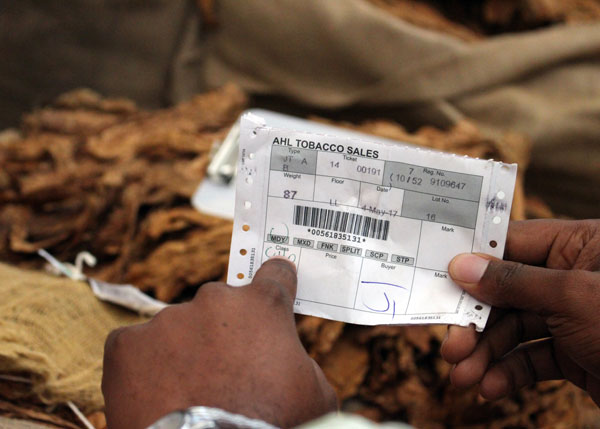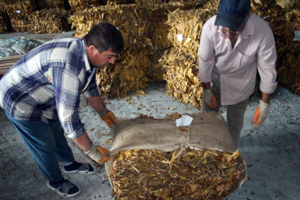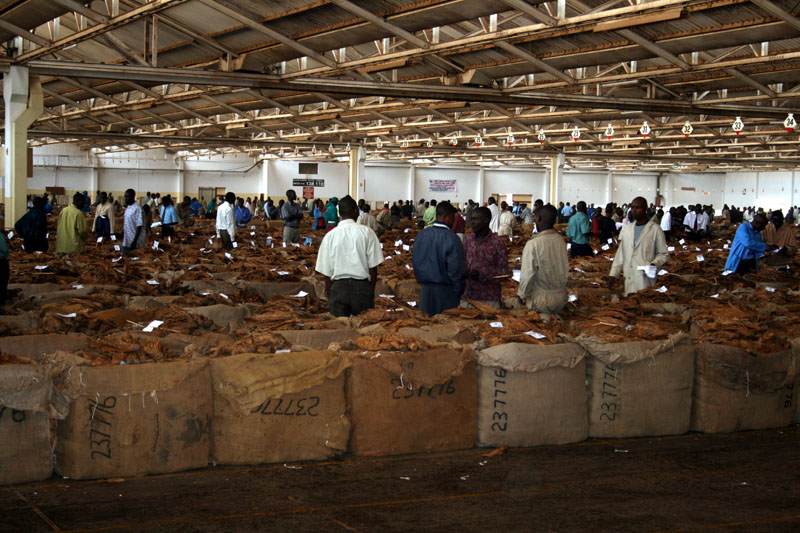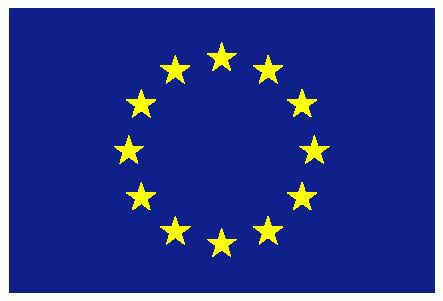The Malawi Parliament on Monday passed the Tobacco Industry Bill, which, among other things, bans buyers from growing tobacco or engaging in the transport and grading of tobacco, according to a story at Malawi24.com.
The law is aimed also at strengthening tobacco associations by increasing membership from 3,000 to 5,000.
Speaking after the bill was passed, the Minister of Agriculture Joseph Mwanamvekha said the new law meant farmers would no longer be ripped off by buyers. It would introduce sanity to the tobacco industry.
“In the past, the farmer was ripped off,” he said. “The farmer signed the contract without knowing the prices he would be offered.”
The minister claimed also that the law would help reduce poverty because farmers would earn more.
However, last week, the Member of Parliament for Karonga North, Frank Mwenefumbo, opposed the bill saying it would benefit only companies.
Mwenefumbo, who is a member of the Alliance for Democracy (AFORD) party, said people in his constituency were against the bill because farmers were aware that it would favor the tobacco companies rather than the farmers.
“Let us put our farmers first and the rest should come second; farmers are the ones who put much effort and money in tobacco business but what do they gain at the end of the day: peanuts, which is not fair to our farmers,” he said.
“These companies are making a lot of profits from our farmers’ sweat; farmers should therefore have all the powers and the companies should surrender their licenses to our farmers; otherwise, this bill is no of use.”
Category: Sustainability

Growers "ripped off"

Okay, just a puff
While vapers may suffer the occasional smoking lapse, they don’t necessarily see such a lapse as ‘game over’ for their quit attempt, and it doesn’t have to lead to a full relapse, according to a story at medicalxpress.com describing new research from the University of East Anglia (UEA), UK.
The research findings, published in the journal Drug and Alcohol Review, suggest that vaping encourages not just smoking cessation, but long-term relapse prevention.
Lead researcher, Dr. Caitlin Notley, of the UEA’s Norwich Medical School, said electronic cigarettes were the most popular aid to quitting smoking in the UK, and that her research team had wanted to discover what happened when people who had switched to vaping lapsed back into smoking.
“In the past, a brief smoking lapse would almost always lead to a full relapse, and people would usually feel like a failure for slipping up,” said Notley. “But this was before people started switching to vaping.
“The difference is that, for some vapers, the odd cigarette was thought of as being ‘allowed’. For others, an unintentional cigarette made them even more determined to maintain abstinence in future.
“Either way, it didn’t necessarily lead to a full relapse back into smoking…
“Because vaping is a more pleasurable alternative, our research found that a full relapse into smoking isn’t inevitable when people find themselves having the odd cigarette.
“There has been a lot of theorising around the process of smoking relapse after quit attempts. But all of these date back to pre-vaping times. This fresh evidence makes us question the usefulness of that understanding now that so many people are choosing to switch to vaping.
“For ex-smokers, vaping offers a pleasurable, social and psychological substitute to cigarettes – and it powerfully alters the threat of relapse. The old ‘not a puff’ advice may need revisiting.”
Azerbaijan gears up
The Azerbaijan tobacco-products manufacturer Tabaterra has built a factory in the Sumgayit Chemical Industrial Park about 30 km from the capital, Baku, according to an AzerNews story that updates slightly one published by the same outlet in October.
The country is aiming to minimize the import of tobacco products.
The director of Tabaterra, Elman Javanshir, reportedly told the head of state that the $48-million factory would produce international-standard cigarettes using British, German and Italian technologies.
The factory, he added, would have an annual production capacity of 11 billion filter cigarettes in three formats, and would meet 80 percent of the country`s demand for tobacco products.
The story said that Azerbaijan’s annual cigarette consumption currently stood at more than 10 billion, of which 1.6 billion were produced domestically and nine billion were imported.
The project is expected to create 200 jobs.
Last year, the Azerbaijani President Ilham Aliyev signed a decree approving the State Program for the Development of Tobacco Growing in Azerbaijan for 2017-202.
According to the decree, the State Program is aimed at the development of tobacco growing, improving tobacco processing, increasing profitability and export potential, and increasing employment in rural areas.
Protecting growers
Debate on a report on Malawi’s Tobacco Industry Bill by a joint parliamentary committee has been deferred by the leader of the House, Kondwani Nankhumwa, according to a story in The Maravi Post.
The bill, which was tabled in June this year before being referred to the joint committee, seeks to consolidate the Tobacco Act and the Control of Tobacco Auction Floors Act into one law.
It also seeks to introduce regulations specifically designed to cover contract farming, whereas previously only the auction system was recognized in law.
Presenting the report to the House, committee chairperson Joseph Chidanti Malunga said the bill would regulate contract farming and fill the gap in the legislation.
He said the committee had taken into consideration the fact that contract farming would drive auction marketing to extinction.
“The joint committee was of the view that the bill should not provide for any quota,” he said. “The markets should be left open and the market dynamics should prevail and determine volumes of tobacco to be produced and sold under either system.”
The Post report said that, under the contract farming system, growers suffered a lot of deductions, many of which they become aware of only ‘when the tobacco was being sold by the buyer’.
The committee was said to have received submissions that contract farming should be eliminated because it had proved to be less profitable for growers than the auction system, even though contract tobacco was sold for a higher price than was auction tobacco.
“The committee considered the submission and formed the view that the funded contract system should be retained because not all farmers can afford to produce tobacco with their own resources,” said Malunga. “If it is abolished, growers will be forced to get loans from commercial banks who charge exorbitant interest rates.”
However, the committee has recommended additional provisions aimed at protecting growers operating under contract farming from deductions not properly spelt out and other financial burdens.
Monitoring developments
The EU Commission has said it does not undertake educational awareness-raising campaigns on the toxicity of e-liquids and flavourings, and that it does not foresee its undertaking such activities.
The Commission was replying to questions posed by a Spanish member of the EU Parliament.
In a preamble to three questions, José Blanco López said the use of refillable e-cigarettes and the potential exposure to liquids from e-cigarettes that contained high concentrations of nicotine posed risks to public health.
Twenty percent of people aged between 14 and 18 had tried this ‘new system’.
‘The majority of them do not know that it contains nicotine and many others take another type of drug due to the different way that they use e-cigarettes, according to the latest data from the Spanish National Committee for Preventing Tobacco Addiction,’ he said.
‘In accordance with European regulations in this area, namely Regulation (EC) No 1272/2008, Directive 2014/40/EU and Report COM (2016) 269 final, can the Commission say:
1) ‘Is it considering the possibility of carrying out a greater number of investigations on certain aspects of e-cigarettes which apply to refillable models, such as emissions checks and studies on the safety level of the flavouring substances and their blends?
2) ‘Does it intend to raise standards for labeling?
3) ‘Does it intend to launch informative and educational awareness-raising campaigns on the toxicity of liquids and flavouring substances?’
In reply, the Commission said it had taken note of the figures from the Spanish National Committee for Preventing Tobacco Addiction presented by the MEP.
‘The Tobacco Products Directive lays down rules for tobacco and related products placed on the EU market,’ it said. ‘Article 20 of the Directive introduces a regulatory framework for electronic cigarettes with a focus on safety, quality, consumer protection and information as well as data collection.
‘The Directive does not however harmonise all aspects of electronic cigarettes or refill containers (e.g. rules on flavours and nicotine-free refill liquids are of national competence).
‘The Commission continuously monitors developments related to e-cigarettes, including emerging scientific evidence. This information will contribute to the implementation report on the Tobacco Products Directive that the Commission is required to submit in 2021, in line with Article 28(1) of the Directive. The Commission facilitates information exchanges and best practices, assessment of data and is working with member states for example in the Expert Group on Tobacco Policy, Subgroup on Electronic Cigarettes and in the context of a Joint Action on Tobacco Control.
‘The Commission does not currently undertake educational awareness-raising campaigns and does not foresee activity in this area.’
Santa Fe supports growers
Santa Fe Natural Tobacco Company (SFNTC) has donated $100,000 to the Carolina Farm Stewardship Association (CFSA) for the creation of the Hurricane Relief Partnership for Carolina Sustainable Farms.
SFNTC is a subsidiary of Reynolds American, which is an indirect, wholly owned subsidiary of British American Tobacco.
SFNTC, a member of the non-profit CFSA, said that the new hurricane relief partnership had two key purposes:- To provide access to low-cost capital and financial planning to between 30 and 50 small sustainable farms in North and South Carolina that suffered damage due to the impact of Hurricanes Florence and Michael; and
- To create an endowment fund to guarantee availability of low-cost financing for small sustainable Carolina farms in the event of future catastrophic weather events.
“The Hurricane Relief Partnership for Carolina Sustainable Farms marks the beginning of a new strategy in building the financial resilience of our region’s sustainable agriculture community,” said Roland McReynolds, CFSA’s executive director.
“The probability of disasters in future years presents a long-term threat to the survival of sustainable family farms serving the markets for local and organic agricultural products in this region.
“These farms, some of which are SFNTC’s grower partners, are not reliably served by the safety net that exists for large-scale conventional commodity production. Yet the contributions they make to their communities — enhanced soil and water quality, biodiversity, healthy food, economic growth — are vital, and when one of these farms is lost, it has long-lasting negative effects.”
According to a press note on the Reynolds American website, CFSA will work with the Natural Capital Investment Fund (NCIFund) to leverage SFNTC’s donation to create up to $250,000 in low-cost microloans for small, sustainable farms in North and South Carolina affected by the hurricanes.
‘CFSA will also partner with the Rural Advancement Foundation International-USA to support its work to assist farmers in accessing state and federal disaster relief programs, and to provide financial counselling to farmers receiving NCIFund loans under the Hurricane Relief Partnership program,’ the note said.
McReynolds added that CFSA would use funds that were not expended as part of the 2018-19 NCIFund loan guarantee agreement as a guarantee pool for weather-related farm losses beyond 2019.
The association would solicit also other contributions to this endowment, with a goal of building a larger guarantee fund to support greater availability of low-cost, low-underwriting microloans for this population of small, sustainable farms in future years.
No answer to poisoning
The EU Commission has said that the issue of improving health and agricultural safety in Zimbabwe features in regular policy dialogues with the Government.
The Commission was responding to questions from an Italian member of the EU Parliament, who had asked the Commission what steps it was taking to reduce the risk of tobacco poisoning among tobacco farmers and their families.
In a preamble to her questions, Barbara Matera said that when the proper safety procedures were not adhered to, the risk of tobacco poisoning among farmers was high.
‘Zimbabwe, in particular, has experienced a large number of tobacco poisoning cases, which can be attributed to a lack of education about the condition and a lack of funding for the proper preventive equipment,’ she said.
‘This sickness also greatly affects children who help out with the harvest in rural areas.’
Matera said tobacco was Zimbabwe’s largest export product, and its largest agri-food export to the EU, before asking:
‘What is the Commission doing to promote education among tobacco exporters?’
‘What can the Commission do to provide adequate equipment and protection for farmers, especially those with children?’
In its written reply, the Commission said the 11th European Development Fund National Indicative Programme (€234 million), envisaged support for health, agriculture-based economic growth and governance in Zimbabwe.
‘The Commission does not provide support to the production of tobacco in Zimbabwe,’ it said. ‘However, agriculture being the backbone of Zimbabwe’s economy, the Commission provides substantial support to agricultural resilience and production and supports value-chains for products such as beef, chicken or dairy aiming at creating jobs.
‘The Commission is also one of the main contributors to the Health Development Fund managed by the United Nations Children’s Fund. This Fund aims at guaranteeing that the population can access comprehensive and effective health services and at strengthening health systems to improve the level of care.
‘The issue of improving health and agricultural safety also features in the regular policy dialogue with the Government.
‘Zimbabwe is a Party to the World Health Organization Framework Convention on Tobacco Control. Article 17 recognises the need to promote economically viable alternatives to tobacco production to prevent adverse impacts on populations whose livelihoods depend on it. Article 18 covers the protection of the environment and the health of persons in respect of tobacco cultivation and manufacture. Zimbabwe has benefited from sharing of experience and provision of technical assistance for the implementation of these articles.’
It's time to talk
The website for the sixth Global Forum on Nicotine (GFN) is now online.
The conference will be held at the Marriott Hotel, Warsaw, Poland, on 13-15 June 2019.
The conference, whose theme is, It’s time to talk about nicotine, is due to include plenary sessions, symposia, panel discussions, poster presentations, and satellite sessions.
The program committee is inviting abstracts for oral presentations, deadline February 10, and posters, deadline March 31. Abstracts should be submitted online.
The committee will use selected abstracts to construct themed sessions over the coming months. Authors will be informed if their abstracts have been accepted before the posting of the near-final program by April 22.
The organisers are making available up to three scholarships for early-career researchers who are chosen to make oral presentations.
Once again, the International Symposium on Nicotine Technology (ISoNTech) will run alongside GFN18.
E-issues need addressing
Electronic cigarettes are starting to attract the attention of people concerned about littering, according to a story by Mari A. Schaefer at www2.philly.com (Philadelphia).
While single-use plastic straws, bags, and coffee pods had already captured the attention of the public and legislatures looking to ban products that wind up littering the landscape, Schaefer said, e-cigarettes had begun to show up on streets and shores, catching officials off-guard and presenting the challenge of how to deal with litter that was part recyclable and part hazardous.
“We started seeing them a number of years ago,” said Cindy Zipf, executive director of Clean Ocean Action, a non-profit organization that compiles biannual beach clean-up reports from the New Jersey Shore. “Most of us didn’t even know what they were,” she said.
Schaefer said that each e-cigarette had five components – residual nicotine, plastic, lithium batteries, aluminium, and fabric – each of which had to be disassembled and recycled separately. The products came in various shapes and sizes, from large, refillable tank devices to rechargeable devices that incorporated single-use plastic pods that looked like USB flash drives.
Meanwhile, Philadelphia’s environmental planning director, Scott McGrath, said the city currently was investigating how to recycle e-cigarette waste.
The city had contacted its third-party electronic- and hazardous-waste vendors for guidance because the e-cigarettes fell into both categories. Of particular concern, he said, were the lithium batteries used in some products, which were water-reactive and which could start fires if not disposed of properly.
Attempt to calm moral panic
A group of academics and tobacco control and public health experts is trying to convince the US Food and Drug Administration to slow down and consider the risks of hasty regulation, according to a piece by Jim McDonald at Vaping360.
The National Tobacco Reform Initiative (NTRI) is said to have sent a letter to Dr. Scott Gottlieb, calling on the FDA commissioner to hold a summit of stakeholders to discuss the FDA’s policy on vapor products and vaping.
In introducing his piece, McDonald said the FDA seemed dead set on restricting the vapor industry very soon. The agency had given JUUL Labs and the four major tobacco companies that also sell vapor products 60 days to submit plans to eliminate sales to teenagers. That 60-day deadline expired soon after next week’s elections.
Meanwhile, McDonald said that NTRI co-ordinator Allan Erickson had written to Gottlieb saying that to address the situation fully would require the involvement and support of not only the FDA, but other stakeholders as well. Erickson, a former American Cancer Society vice president, believes that e-cigarettes can play a part in tobacco control efforts to reduce smoking.
‘We therefore wish to recommend that the FDA/CTP [the FDA’s Center for Tobacco Products] sponsor a national dialogue related to youth use of tobacco and nicotine products as well as the need to provide the 30 million adult smokers in this country with lower risk alternative tobacco and nicotine products, to be held sometime in early 2019,’ he said in his letter.
The NTRI leadership includes David Abrams and Ray Niaura of New York University (both formerly with the Truth Initiative), former American Heart Association vice president Scott Ballin, and former American Cancer Society president John Seffrin. The organization’s advisory group includes Clive Bates and Iowa Attorney General Tom Miller. Miller was one of the state attorneys general who sued the tobacco companies, leading to the 1998 Master Settlement Agreement. He was the chair of the Truth Initiative board last year.
McDonald’s piece says, however, that the NTRI letter may be too late to affect Gottlieb’s thinking.
‘He’s shown no signs of cooling his reckless “epidemic” rhetoric,’ McDonald said. ‘There’s nothing the FDA commissioner needs more now than wisdom from clear-headed and open-minded veterans of the tobacco wars. But he appears less and less likely to listen.’









